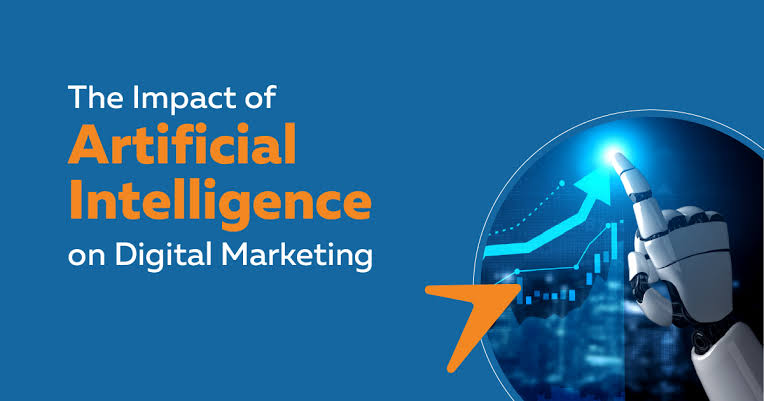The Impact of Artificial Intelligence on Digital Marketing
Explore how artificial intelligence is transforming digital marketing by enhancing personalization, automating processes, optimizing advertising, and enabling predictive analytics. Discover the benefits, challenges, and future impact of AI on digital marketing strategies.
Digital Marketing | August 18, 2024
Explore how artificial intelligence is transforming digital marketing by enhancing personalization, automating processes, optimizing advertising, and enabling predictive analytics. Discover the benefits, challenges, and future impact of AI on digital marketing strategies.
The impact of artificial intelligence (AI) on digital marketing has been transformative. It offers innovative tools and techniques that redefine how businesses engage with audiences. AI's integration into digital marketing strategies enables more personalized experiences. It also streamlines processes and fosters data-driven decision-making. This integration reshapes landscape in significant ways.
Personalization is one of most profound changes brought about by AI in digital marketing. Traditional marketing strategies often relied on broad demographic categories. This could lead to generalized and sometimes ineffective campaigns. AI changes this by allowing marketers to analyze vast amounts of data. It helps understand individual customer preferences and behaviors. Machine learning algorithms process this data to create highly personalized experiences. These include tailored content product recommendations and advertisements that cater to individual interests. For example recommendation engines used by e-commerce platforms like Amazon analyze past purchase behavior, browsing history and social media activity to suggest products that customer is likely to be interested in. This level of personalization enhances customer experience and increases likelihood of conversions driving sales and revenue for businesses
AI also plays crucial role in automating various aspects of digital marketing. Tasks that once required significant manual effort can now be handled efficiently by AI-powered tools. This frees up marketers to focus on strategic activities. AI can automate content creation social media management and email marketing campaigns by analyzing data on customer engagement. It determines best times to send emails, type of content that resonates with specific audiences and optimal frequency of communication. Additionally AI chatbots handle routine customer inquiries. They provide instant responses and resolve issues without human intervention. This not only improves customer satisfaction but also allows marketing teams to concentrate on more complex tasks.
In digital advertising AI revolutionizes how campaigns are planned, executed measured. Programmatic advertising, powered by AI enables real-time buying and placing of ads. It targets specific audiences based on online behavior. This precision ensures ads reach right people at right time maximizing return on investment for marketing budgets. AI also enhances campaign performance analysis through advanced analytics. By identifying patterns and trends, AI helps marketers make data-driven decisions. It optimizes campaigns for better results. For instance AI can determine which keywords drive most traffic or which ad creatives generate highest engagement. It continuously adapts to keep campaigns effective and relevant
Predictive analytics is another area where AI makes significant impact. By analyzing historical data AI forecasts future trends, customer behaviors and market conditions. This capability allows marketers to make informed decisions. They can anticipate customer needs. They can also address potential challenges proactively. For example AI can predict which marketing strategies are likely to be successful based on past campaign data. This enables businesses to allocate resources more effectively. AI can also identify emerging trends in consumer behavior. It helps businesses stay ahead and adjust strategies accordingly
Despite benefits AI in digital marketing presents challenges and ethical considerations. Data privacy is major concern. AI relies heavily on data to personalize experiences. Businesses must be transparent about data collection practices. They must comply with regulations like General Data Protection Regulation (GDPR) to protect consumer privacy. Additionally, risk of bias in AI algorithms exists. This can perpetuate existing biases in data and lead to unfair treatment. Marketers need to monitor and address biases in their AI-driven strategies. This ensures inclusivity and equity.
In conclusion artificial intelligence has had profound impact on digital marketing. It enhances personalization, automates processes optimizes advertising and enables predictive analytics. While challenges and ethical considerations exist, potential benefits of AI are substantial. As AI technology continues to advance it will increasingly shape future of digital marketing. This allows businesses to deliver more targeted, effective and personalized experiences to customers.
